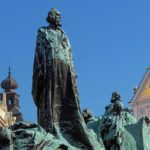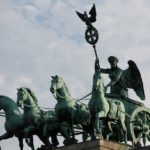In February and March 2017 state elections were held in India. The greatest concern was shown towards those in Uttar Pradesh, which is the most populated region and, what’s also important, inhabited by a large Muslim minority. The elections were won by the Indian People’s Party (the BJP) under the leadership of present prime minister Narendra Modi. Because of his affiliation with religious and nationalist paramilitary organization Rashtriya Swayamsevak Sangh (RSS) many raise the question whether there’s a risk of increase in Hindu extremist activities and the eruption of unrest similar to those in Gujarat in 2002, which resulted in death of several hundreds of Muslims.
The victory of the BJP is considered by inattentive analysts as an indication of a rise in nationalist attitudes in Hindu society. At the same time many researchers point out that the support for political right makes up 30%-40%. It is usually enough to win in a given constituency. Some assume correctly that the BJP won in those districts where Muslims didn’t exceed 45% of total population and lost to the Bahujan Samaj Party (BSP Majority People’s Party) in 7 constituencies in which Muslims are the majority. The studies indicate that both this year’s and 2014 state assembly elections’ triumphs are an effect of the opposition’s weakness and its internal divisions, which result in the dispersion of votes. It’s important as one should remember that in India the “first past the post voting”, the candidate who receives most votes wins, is in force. It means that the winner in a certain constituency doesn’t have to be supported by at least 50% of voters. Such political forces as the BSP, which won multiple times in Uttar Pradesh, got 22% of the popular vote and barely 19 seats in the Legislative Assembly. The Indian National Congress’, secular social-liberal (Mahatma Gandhi), support totaled up to 6% and resulted in 7 seats. Continue reading




















